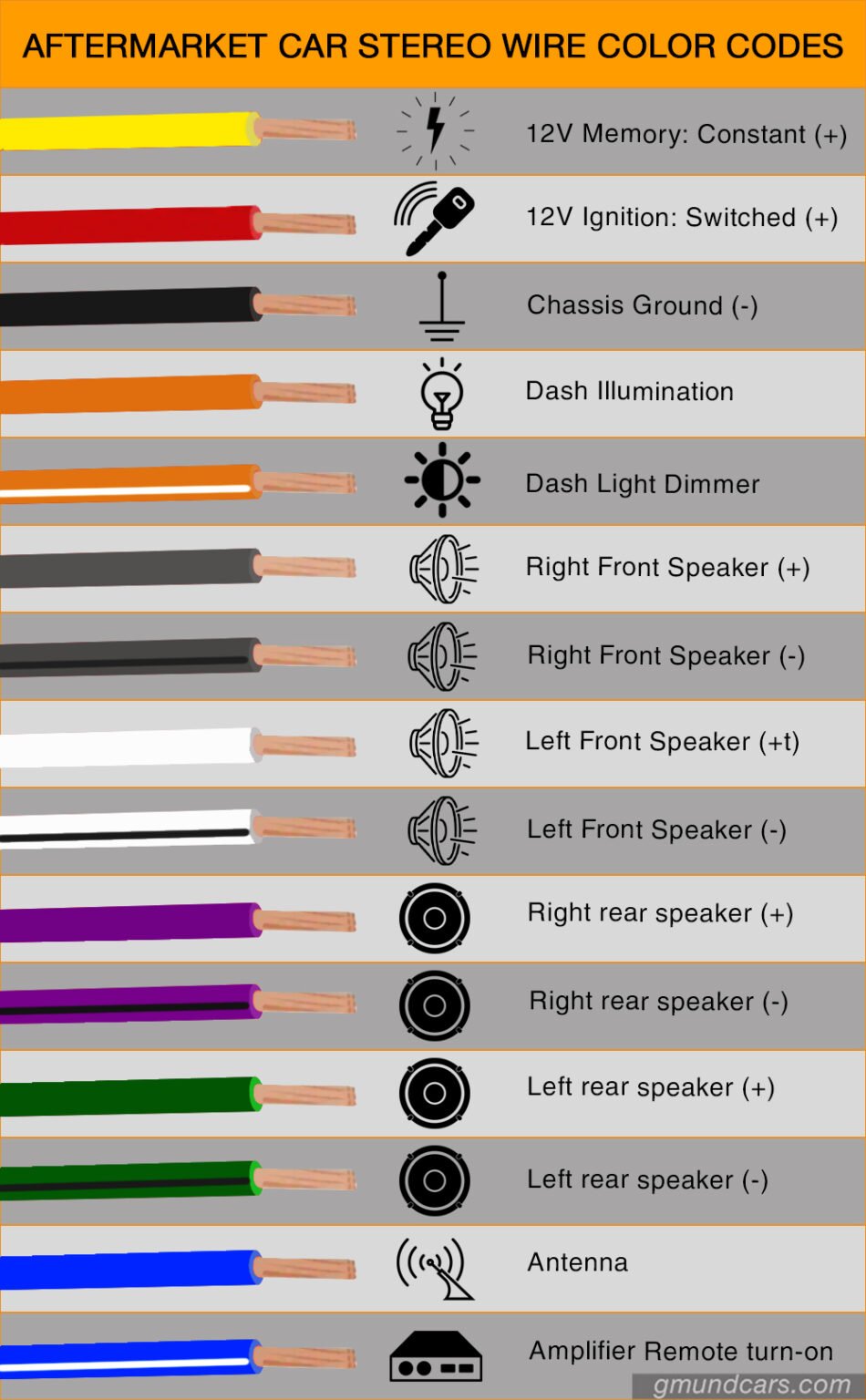Unraveling the Enigma of REM Wire in Amplified Systems
In the labyrinthine world of audio engineering, where the pursuit of pristine sound reigns supreme, a seemingly humble component often plays a pivotal role: the REM wire. This unassuming conductor, often overlooked, holds the key to orchestrating the harmonious dance between amplifier and audio source. But what exactly *is* a REM wire, and why does it hold such significance within the intricate tapestry of amplified audio systems?
The REM wire, short for "remote turn-on," acts as the messenger, carrying the signal that awakens the amplifier from its slumber. Imagine it as the conductor's baton, cueing the orchestra to begin its performance. When the audio source, such as a car stereo, is powered on, it sends a low-voltage signal through the REM wire, effectively switching the amplifier to its active state. Without this crucial signal, the amplifier remains dormant, awaiting its call to action.
To grasp the profound importance of the REM wire, we must first delve into the very essence of amplification. Amplified audio systems, whether in a car, home theater, or concert venue, rely on the symbiotic relationship between the source and the amplifier. The source provides the audio signal, while the amplifier imbues it with the power necessary to drive speakers and produce sound. The REM wire, in essence, acts as the bridge connecting these two critical components, ensuring their synchronized operation.
The historical lineage of the REM wire is intertwined with the evolution of amplified audio systems. As amplifiers became more sophisticated, so too did the need for a reliable and efficient method of controlling their power state. The REM wire emerged as a simple yet elegant solution, eliminating the need for manual switching and streamlining the user experience.
One of the primary issues associated with REM wires is their susceptibility to malfunctions. A faulty REM wire can lead to a range of problems, from a perpetually dormant amplifier to one that refuses to power off, draining the vehicle's battery. Troubleshooting REM wire issues often involves checking for continuity, ensuring proper connections, and examining the voltage signal from the source unit.
A REM wire typically carries a 12-volt signal when active. This low voltage is sufficient to trigger the amplifier's internal switching mechanism, allowing it to draw power from the main battery and begin amplifying the audio signal. For instance, when you turn on your car radio, a 12-volt signal is sent through the REM wire to activate the amplifier, ensuring that your music is played with the desired power and clarity.
Benefits of a properly functioning REM wire include efficient power management, preventing unnecessary battery drain. They also allow for seamless integration between the audio source and amplifier, and ensure reliable amplifier activation and deactivation.
Advantages and Disadvantages of REM Wire
| Advantages | Disadvantages |
|---|---|
| Automated amplifier control | Susceptibility to wiring issues |
| Efficient power management | Potential for signal interference |
| Simplified system integration | Requires proper voltage for activation |
Best Practices for Implementing REM Wire:
1. Use high-quality wiring to minimize signal loss.
2. Ensure secure connections to prevent intermittent issues.
3. Protect the wire from damage by routing it away from sharp edges and heat sources.
4. Test the REM wire's functionality after installation to verify proper operation.
5. Consult the amplifier and source unit manuals for specific wiring diagrams and instructions.
Frequently Asked Questions:
1. What does REM wire stand for? Remote Turn-On.
2. What voltage does a REM wire carry? Typically 12 volts.
3. What happens if the REM wire is faulty? The amplifier may not turn on or off correctly.
4. How do I test a REM wire? Use a multimeter to check for continuity and voltage.
5. Can I use any wire for REM? It's recommended to use wire specifically designed for this purpose.
6. What if my head unit doesn't have a dedicated REM output? Some adapters can be used.
7. How do I connect a REM wire? Consult your amplifier's wiring diagram.
8. What if my amplifier stays on even with the head unit off? Check for a short in the REM wire.
Tips and Tricks: Use a fuse on the REM wire to protect the amplifier and head unit.
In the grand symphony of audio, the REM wire plays a critical, albeit often unsung, role. Its function, though seemingly simple, is essential for the proper operation of amplified audio systems. Understanding the nuances of the REM wire, from its purpose to its potential pitfalls, empowers us to optimize our audio setups, ensuring that the music we cherish is reproduced with the clarity and fidelity it deserves. By following best practices and addressing common challenges, we can unlock the full potential of our audio equipment, transforming our listening experiences from mundane to magnificent. So, the next time you revel in the sonic tapestry of your favorite song, take a moment to appreciate the humble REM wire, the silent conductor orchestrating the harmonious convergence of power and sound. Investing time in understanding and maintaining your REM wire connections will ultimately lead to a more rewarding and enjoyable auditory experience.
Elevate your discord presence crafting aesthetic server names
Saving our waters fun activities for 3rd graders
Escape to sylt flights and hotels await













